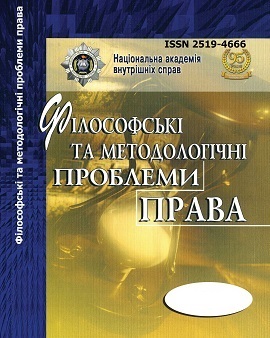Moral and Legal Challenges for Global Information Society
Abstract
The article explores the problems that society faces with in the era of the global information revolution. In the electronic space, behavioral standards and value orientations of the individual are changing. All this creates a number of serious moral and legal problems that require discussion within the framework of humanitarian knowledge. The need for a society in universal moral norms is solved at the expense of axiological pluralism. It is claimed that the pluralistic ideology of the information society leads to the loss of a clear hierarchy of moral values, the growth of alienation and the loss of connection with its authenticity. Law as a way of regulating public relations, affects information processes, their globalization. The world powers are beginning to realize the need to create a broad legal framework for monitoring the content of the Internet. The complexity of this problem is determined by its global nature, therefore the implementation of control requires concerted action by the entire world community. It is necessary to modernize both the legal system of society and form new ethical norms of behavior in cyberspace. The dialectical interconnection and interdependence of legal, moral and technological factors in the formation of the information society is manifested in the liberalization of rules for the regulation of the information space, the formation of new norms of behavior, changes in information legislation, the role of state regulation and international cooperation.
Downloads
Abstract views: 177 PDF Downloads: 440
Copyright (c) 2018 Philosophical and Methodological Problems of Law

This work is licensed under a Creative Commons Attribution-NonCommercial-NoDerivatives 4.0 International License.
- Authors reserve the right to authorship of their own work and transfer to the magazine the right of the first publication of this work under the terms of the Creative Commons Attribution License, which allows other persons to freely distribute published work with mandatory reference to authors of the original work and the first publication of an article in this magazine.
- Authors have the right to enter into separate additional agreements on non-exclusive dissemination of the work in the form in which it was published in the journal (for example, to post an article in the institution's repository or to publish as part of a monograph), provided that the link to the first publication of the work in this journal is maintained.
- The journal's policy allows and encourages the posting of articles by authors on the Internet (for example, in electronic storehouses of institutions or on personal websites), both before the submission of this manuscript to the editorial office and during its editorial processing, as this contributes to the creation of a productive scientific discussion and positively affects the efficiency and dynamics of citing the published work.




